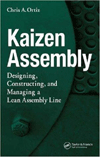Electric vehicles suffer from a widespread lack of industrywide standards. However, engineers are trying to tackle that challenge.
Electric vehicles are a hot topic these days. They're generating a lot of buzz in the news media. However, the automotive industry suffers from a widespread lack of EV component standards. As a result, it’s hard to get a good baseline for design and cost comparison. Testing standards vary widely from supplier to supplier.
Most observers claim that EV standards will eventually help spur R&D activity and drive down production costs. According to Nam Thai-Tang, vice president of programs at ALTe LLC, a startup firm that specializes in range-extended electric power trains, “EV standards [will] help level set the industry to a minimum expectation. More standards [will] eventually get cost out. Companies entering the space would know exactly what needs to be delivered and how best to trade off the cost and technology needs.”
“Standards will not only reduce cost, but improve the efficiency and use of EVs,” claims Charlie Duncheon, president and CEO of EIG America Inc., a manufacturer of lithium-polymer batteries.
Sherif Marakby, director of electrification programs and engineering at Ford Motor Co. agrees. “Battery cells could be standard amongst automobile manufacturers,” he points out. “Also, there are several other components, such as DC-DC converters and electric compressors, that automobile manufacturers could share.”
Standards are slowly starting to emerge. For instance, earlier this year, SAE International unveiled a standard interface between electrical charging systems and plug-in hybrid and battery-electric vehicles. J1772 spells out the general physical, electrical and performance requirements for the coupler, which consists of a connector and vehicle inlet. The purpose of the standard is to define a common electric-vehicle charging network, thereby reducing costs and increasing convenience for owners of electric vehicles.
While that’s an important step in the right direction, more standards must be created before EVs gain traction. Unfortunately, that may take quite some time.
“Standards are not possible until a leadership position is taken,” says Larry Stockline, president of Promess Inc., which supplies GM’s Volt program with sensing systems technology. “The fight is on.” Automakers such as Ford, GM and Nissan are jockeying for position.
Carl Bonfiglio, senior segment marketing manager at Infineon Technologies North America, a supplier of power electronics, believes it “will be some time before [EV standardization] happens. Right now, the variations in design strategies across different types of electric and hybrid vehicles work against standardization.”
“There are safety and other technical standards, but in terms of standardizing components across companies, that is no more likely than standardizing engines or other corporate technologies,” adds Tom Gage, CEO of AC Propulsion Inc., an EV drivetrain supplier.








